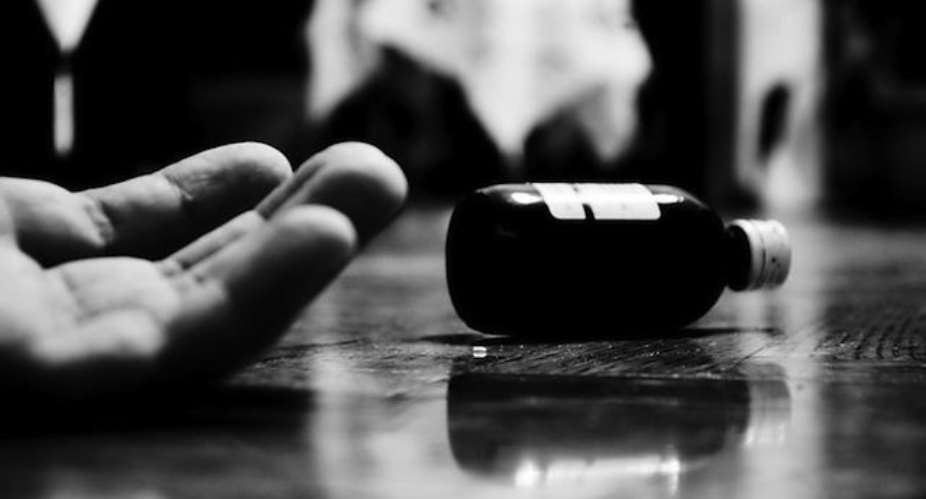Adolescent suicide is real. Reported cases in the media in the first two months and three weeks of the year, stand at eight. However, many more cases go unreported.
According to studies by the Psychology Department of the University of Ghana, adolescent suicide occurs mostly in schools. Children of single parents, with single mothers being more prone to adolescent suicide. Contrary to perceptions that more females commit the act, the study found more males doing so.
Existing laws have not helped much as they criminalize the act, compelling persons who attempt it to complete it to avoid the penile consequences. Cultures typically frown on suicide making it a taboo topic.
Telling a friend or family relations will accordingly attract condemnation instead of help. Unfortunately, most Ghanaians do not show compassion or care in such scenarios, but rather, persons contemplating suicide are silenced. They bottle up their intentions and eventually carry it out.
The crude social system does not question itself when the unfortunate happens, but rather judges, stigmatizes and victimizes affected persons.
Interestingly, it would seem those suicide affects the most care about it the least. During a talk organized by the University of Ghana for some final year students, some of the student's told Citi News they wouldn't have attended the talk if they knew it was on suicide.
They reasoned that there was no way they would attempt taking their own lives since they do not have any mental conditions.
However Suicidologist, Dr. Joseph Osafo, says suicide is not necessarily a mental condition, but a response to distress which could happen to anyone.
He outlined signs that show one could be experiencing suicidal thoughts, and how to help oneself or friends.
His talk was interactive, insightful and engaging that the students who initially showed disinterest were engrossed in it.
After series of probing questions, it became apparent the university needed to conduct medical screening on the mental status of freshers.
This is to help in the allocation of rooms and general service delivery to suit students with dispositions to suicide, a concern the Dean of Social Science, Dr. Charity Akotia proposed to be relevant for consideration and implementation.
Many Ghanaians like the students in the auditorium think they are above suicide. Unfortunately, some negative attitudes of most Ghanaians does not help matters.
Below is the full talk of Dr. Joseph Osafo on how to help a person with suicidal tendencies and what not to do:
–
By: Caleb Kudah/citifmonline.com/Ghana





 Saglemi Housing Project will not be left to rot – Kojo Oppong Nkrumah
Saglemi Housing Project will not be left to rot – Kojo Oppong Nkrumah
 Transport fares hike: GPRTU issue two-day ultimatum
Transport fares hike: GPRTU issue two-day ultimatum
 ARC endorses Alan as presidential candidate – Buaben Asamoa
ARC endorses Alan as presidential candidate – Buaben Asamoa
 Akufo-Addo appoints Kwasi Agyei as new Controller and Accountant-General
Akufo-Addo appoints Kwasi Agyei as new Controller and Accountant-General
 PNC dismiss reports of mass resignations
PNC dismiss reports of mass resignations
 PAC advocates for revenue collectors to be engaged on commission basis, not full...
PAC advocates for revenue collectors to be engaged on commission basis, not full...
 Genser Energy commissions 110km of natural gas pipeline at Anwomaso
Genser Energy commissions 110km of natural gas pipeline at Anwomaso
 Naa Torshie calls for tolerance, peace ahead of 2024 election
Naa Torshie calls for tolerance, peace ahead of 2024 election
 Asantehene commends Matthew Opoku Prempeh for conceiving GENSER Kumasi Pipeline ...
Asantehene commends Matthew Opoku Prempeh for conceiving GENSER Kumasi Pipeline ...
 Let’s do away with ‘slash and burn politics’ in Ghana — Dr Adutwum
Let’s do away with ‘slash and burn politics’ in Ghana — Dr Adutwum
